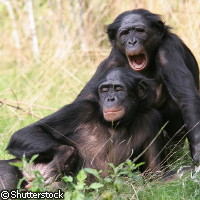Copycat is best strategy of all, bar none
Can a copycat strategy be a good thing? New EU-funded research sheds light on why imitating others is not only natural, but profitable too. The work is part of the EU-funded CULTAPTATION ('Dynamics and adaptation in human cumulative culture') project, which received EUR 2 million under the 'New and emerging science and technology' (NEST) Cross-cutting activity to investigate how human culture evolves, for example by exploring how people develop new behaviours. The researchers behind the latest study, presented in the journal Science, found that people benefit more when they opt for social learning than when they choose to be individualistic. Culture has evolved and persisted because of people's ability to learn from their peers. The question, however, is to determine how people learn socially. Some learn by copying the behaviours of others, while some base their decision on whether or not to copy on the status of the individual. So the researchers, led by the University of St Andrews in the UK, organised a computer tournament in which contestants submitted strategies outlining how to use social learning and its asocial alternatives, such as trial and error learning, to acquire adaptive behaviour in a complex environment. A total of 104 teams wrote computer programs that controlled the behaviour of avatars living in a world they've never experienced before. The goal was to devise the best survival strategy and encode it in a computer program. The results reveal that contestants using mostly social learning were more successful than those who took the asocial 'route'; in other words, contestants using a social strategy reported bigger payoffs. In fact the winning strategy focused nearly exclusively on social learning and weighted information based on the time since acquisition. The winning team, a pair of graduate students from Queen's University in Canada, received a prize worth EUR 10,000. 'What we find is that under a very broad range of circumstances, not only does social learning beat asocial learning hands down, it annihilates it,' explained Professor Kevin Laland of the Centre for Social Learning and Cognitive Evolution at the University of St Andrews. 'There's no balance, no mix of asocial and social learning. In a way, it's like being dumped on a Pacific island where you don't know anything about the environment,' he added. 'You don't know what's good to eat. You could fish, you could catch crabs, you could hunt antelope, pick for tubers, you name it. Some of these will reap rich rewards and some will be fruitless.' Commenting on the research study, Luc-Alain Giraldeau, a professor at the University of Quebec, Montreal, in Canada, said: 'The analysis of the competition addresses in a clearly new way some of the questions that have been nagging at the field of evolutionary social learning for more than two decades.' In terms of what lies ahead, the researchers wrote: 'A critical next step will be to evaluate experimentally to what extent human behaviour mirrors that of the tournament strategies. By drawing attention to the importance of adaptive filtering by the copied individual and temporal discounting by the copier, the tournament helps to explain both why social learning is common in nature and why human beings happen to be so good at it.' Also contributing to this study were researchers from Queen's University, the University of Bologna in Italy, Stockholm University and Mälardalen University, both in Sweden, and the University of California, Los Angeles (US).
Countries
Canada, Italy, Sweden, United Kingdom, United States



